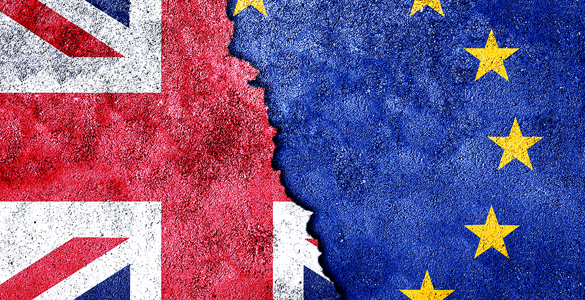The Equality, Local Government and Communities Committee has been exploring the impact of leaving the EU on human rights in Wales. While compared to agriculture or structural funds, human rights might not seem to be the most important issue to discuss during Brexit in relation to Wales, the Committee discovered a number of important issues, from legal protection to third sector funding.
But human rights aren’t devolved…
 While human rights are not devolved, Wales has developed an approach that is increasingly divergent to the UK on the issue since devolution. An example of this is the Rights of Children and Young Persons (Wales) Measure 2011, which requires Welsh Ministers to have ‘due regard’ to the UN Convention on the Rights of the Child (UNCRC) when making their decisions.
While human rights are not devolved, Wales has developed an approach that is increasingly divergent to the UK on the issue since devolution. An example of this is the Rights of Children and Young Persons (Wales) Measure 2011, which requires Welsh Ministers to have ‘due regard’ to the UN Convention on the Rights of the Child (UNCRC) when making their decisions.
EU Charter of Fundamental Rights
One of the main concerns about Brexit’s impact on human rights is the potential loss of the EU Charter of Fundamental Rights. A plain language explanation of the Charter is available from RightsInfo.
If the EU Withdrawal Bill goes ahead as planned, the UK will not have to comply with the Charter when making laws and administrative decisions in areas previously within EU competence, such as consumer protection or workers’ rights. The Charter contains rights beyond those in the Human Rights Act (in particular it covers many social and economic rights, which are not well recognised in UK law), which include:
- a range of social and workers’ rights in Title IV, including the right to fair working conditions, protection against unjustified dismissal, and access to health care, social and housing assistance;
- a guarantee of human dignity (including bioethics), and
- a right to physical and mental integrity (including rights around personal data).
In written evidence to the Committee’s inquiry, Dr Tobias Lock outlined three consequences of the removal of the Charter from the UK legal order: a reduction in substantive rights, a loss of EU law remedies, and the loss of the ability for UK citizens (and the UK itself) to challenge EU law that infringes human rights.
Some organisations like the Equality and Human Rights Commission (EHRC) are worried that when the EU Charter loses effect in the UK, some rights that are not protected by the Human Rights Act will be lost.
The Wales Council for Voluntary Action (WCVA) recently called for the Welsh Government to “investigate ways to adopt the EU Charter on Fundamental Rights in Welsh legislation, to voluntarily bind Welsh Government to its principles”.
Keeping up with EU human rights law after Brexit
The UK would not have to implement EU laws that come into force after Brexit, some of which may enhance protection against discrimination. Professor Thomas Glyn Watkin described human rights protection in the UK on exit day as a ‘freeze-frame’, while protection in EU countries could increase at a faster rate than in the UK.
Disability Wales and RNIB Cymru highlighted a range of future EU disability accessibility legislation likely to be enacted after the UK’s exit that people in the UK will not benefit from, such as the EU Accessibility Act, the EU Web Directive and air and bus travel accessibility regulations.
EU funding for third sector and research
The Equality and Human Rights Commission (EHRC) highlighted that Wales could lose funding for equality and human rights activities in the third and academic sectors as a result of Brexit. There were suggestions that certain groups of people may be disproportionately affected by any loss in funding, as EU funding is focused on particular issues. Current approved EU-funded projects in Wales include projects to decrease youth unemployment, support disabled people into work and increase women’s economic equality.
The WCVA recently recommended that the Welsh Government ensures any “successor funding streams to support regional development should be subject to the same mandatory requirements as those currently in receipt of EU funding, [such as] tackling issues such as equality, poverty and social exclusion in Wales”.
Children’s rights
Professor Hoffman highlighted that the EU is a leading advocate on children’s rights, particularly in child safety and protection, through policy and legislation on family law, protection of children against abuse and exploitation, child pornography, child trafficking, asylum and immigration, and unaccompanied minors.
He also noted that any exclusion from policing and judicial bodies such as Eurojust and Europol (which coordinate investigations and prosecutions across EU countries, including crimes involving children like trafficking and exploitation) “could have highly damaging impacts for vulnerable children”.
UK equality law is an EU requirement
Another argument put forward during the inquiry was that EU law currently requires the UK to have some domestic laws in place relating to human rights and equality. After Brexit, there will be no such requirement. Witnesses such as the EHRC were concerned that the UK Government could then modify or repeal laws such as the Equality Act 2010 if it wishes to. The UK Government’s approach would directly affect Wales, as the Act is not devolved (with the exception of the specific public sector equality duties).
The possibility of Welsh human rights law
During the inquiry, Professor Simon Hoffman said that Brexit presented an opportunity for the introduction of new Welsh human rights law, using the ‘due regard’ principle used in the children’s rights Measure. He argues that the Welsh Government could introduce legislation that requires Welsh Ministers or Welsh public authorities to pay due regard to other international treaties (for example, the International Covenant on Economic, Social and Cultural Rights (ICESCR), or the Convention on the Rights of Persons with Disabilities (CRPD)).
Professor Hoffman also told the Committee that Welsh human rights legislation would be possible under the Wales Act 2017 when the ‘reserved powers’ model comes into force in April 2018. He said that while there is no competence to enter into human rights treaties, ‘observing and implementing international obligations [and] obligations under the Human Rights Convention’ are not reserved.
The Human Rights Convention in this context is the European Convention on Human Rights (ECHR), which, as long as the UK remains a member of the Council of Europe (a different organisation to the EU and the European Council), will remain in force in the UK after Brexit.
Article by Hannah Johnson, National Assembly for Wales Research Service
Image from Flickr by University of Essex. Licensed under Creative Commons.






